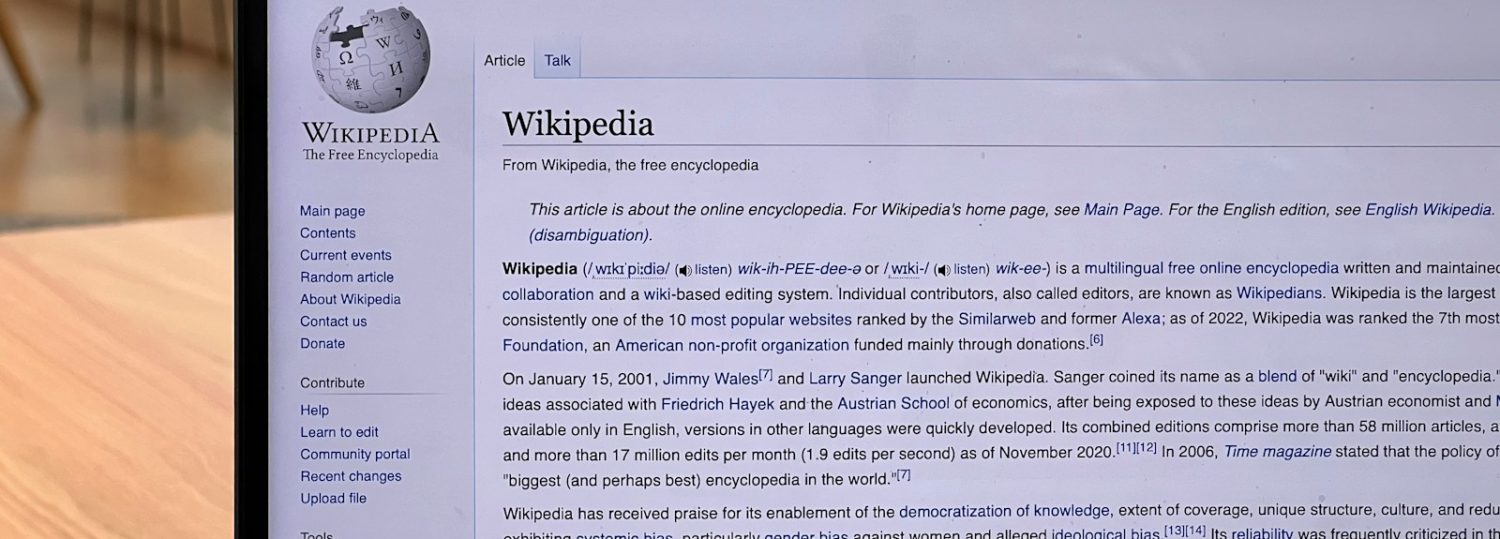Have you gotten a solicitation from an agency looking to boost your profile and reputation by sourcing you a Wikipedia page? You’re not alone, and no, it’s typically not legitimate.
Doing the things these agencies want to do is often against the terms of service of Wikipedia, and in the vast majority of cases, you aren’t eligible for a Wikipedia page.
While Wikipedia is nice, it isn’t a definitive source. Furthermore, the information it would provide on our faculty should already be captured by our profile pages, which we generally want to be at the top of search results anyway–we would much rather get someone looking for John Smith to wind up on the ECE site, and then start clicking away than have them end up on Wikipedia and go down a non-NC State rabbit hole.
Ignoring the administrative challenges of keeping Wikipedia pages updated and accurate (and we do have a few faculty with Wikipedia pages that we occasionally update with honors, etc, and there are probably more updates that can be done (by anyone)), not all (in fact, few) of our faculty meet the criteria for having articles on Wikipedia, per their published criteria.
Additionally, any edit made by an employee of the university must disclose that it is being done so as an employee (COI disclosure), which would draw further scrutiny and require meticulous external sourcing (e.g.: we can’t really cite the ECE website for everything) of every claim—furthermore, we cannot edit a Wikipedia page as “NC State ECE”, but rather have to edit it as a unique individual.
The account is yours, not your employer’s.
Wikipedia
There is no service at the university doing Wikipedia maintenance, simply because most folks are not eligible for Wiki pages. Note that, per their rules, you are also “strongly discouraged” from creating your own page as that’s a conflict of interest.
Even Wikipedia helpfully has a page dedicated to institutional editing/creating of Wikipedia pages.
The following is verbatim from Wikipedia’s criteria for academics.
Criteria
Academics meeting any one of the following conditions, as substantiated through reliable sources, are notable. Academics meeting none of these conditions may still be notable if they meet the conditions of WP:BIO or other notability criteria. The merits of an article on the academic will depend largely on the extent to which it is verifiable. Before applying these criteria, see the General notes and Specific criteria notes sections, which follow.
- The person’s research has had a significant impact in their scholarly discipline, broadly construed, as demonstrated by independent reliable sources.
- The person has received a highly prestigious academic award or honor at a national or international level.
- The person has been an elected member of a highly selective and prestigious scholarly society or association (e.g., a National Academy of Sciences or the Royal Society) or a fellow of a major scholarly society which reserves fellow status as a highly selective honor (e.g., Fellow of the Institute of Electrical and Electronics Engineers or Honorary Fellow of the Institute of Physics).
- The person’s academic work has made a significant impact in the area of higher education, affecting a substantial number of academic institutions.
- The person has held a named chair appointment or distinguished professor appointment at a major institution of higher education and research, or an equivalent position in countries where named chairs are uncommon.
- The person has held a highest-level elected or appointed administrative post at a major academic institution or major academic society.
- The person has had a substantial impact outside academia in their academic capacity.
- The person has been the head or chief editor of a major, well-established academic journal in their subject area.
General notes
- An article’s assertion that the subject passes this guideline is not sufficient. Every topic on Wikipedia must have sources that comply with Wikipedia:Verifiability. Major awards must be confirmed, claims of impact must be substantiated by independent statements, reviews, citation metrics, or library holdings, and so on.
- Once the passage of one or more notability criteria has been verified through independent sources, or through the reliable sources listed explicitly for this purpose in the specific criteria notes, non-independent sources, such as official institutional and professional sources, are widely accepted as reliable sourcing for routine, uncontroversial details.
- The criteria above are sometimes summed up as an “Average Professor Test”: When judged against the average impact of a researcher in a given field, does this researcher stand out as clearly more notable or more accomplished?
- Note that this is a guideline and not a rule; exceptions may exist. Some academics may not meet any of these criteria, but may still be notable for their academic work. It is very difficult to make clear requirements in terms of number/quality of publications. The criteria, in practice, vary greatly by field and are determined by precedent and consensus. Also, this guideline sets the bar fairly low, which is natural; to a degree, academics live in the public arena, trying to influence others with their ideas. It is natural that successful ones should be considered notable.
